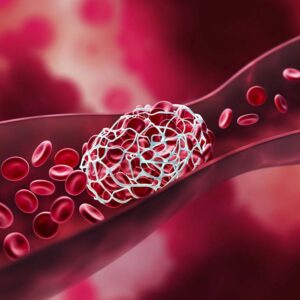
One Easy Trick to Never Forget a Name
Dear Living Well Daily Reader,
On the first day of middle school band class, our teacher went around the room and had everyone say their name once.
After each name, he paused, his eyes narrowing. You could practically hear the wheels spinning in his head. Then he moved on to the next person.
After 30-plus students, he then started with the first person and repeated everyone’s name back to them.
He was flawless. Not a single error.
After our teacher finished, he explained his method for memorizing names like that. It involved associating the person’s name with something else. Either a person he knew previously, or a celebrity, or the like.
It seemed a bit complex and never really worked for me when I tried it. (Which was often, because I tend to forget names almost immediately after hearing them.) And it just seemed like a lot of extra mental work.
But a new study out of France gives me hope there’s a much easier and more effective way to never forget a name: repetition.
But there’s a catch — you can’t just repeat the name in your head or out loud. You have to repeat the name out loud to someone. (1)
Surely, you’ve heard that repeating the person’s name is an effective trick. Maybe you’ve tried saying the name in your head three times or repeating the name to yourself.
And those tricks can work. But according to this study, there’s a better way.
For the study, 44 university students were asked to read a series of words on a screen while wearing headphones that masked their own voice and any other auditory feedback.
For four different lists of words, the students were asked to try to remember the words using different techniques.
For the first list, they repeated the word in their head. For the second list, they repeated the word while silently moving their lips. For the third list, they repeated each word aloud while looking at the screen. And finally, for the fourth list, they repeated each word aloud while addressing someone.
After each technique, they had to identify the words used in the test from a long list.
Repeating the words in their head was the least effective way to remember them, while repeating the words to someone else was the most effective.
The reason it works so well is that actually saying a word or name to someone utilizes a different part of the brain than the other memorization techniques and more firmly cements it in your memory.
When introduced to someone new, try to immediately say their name to them (“John, it’s so great to meet you.”) I’ve found that when I do this, I tend to have a much better chance of remembering their name.
Remembering names and important facts is certainly helpful from a social (and business) perspective. But with the increasing incidence of Alzheimer’s and other forms of dementia, it’s also important to make sure you’re taking adequate steps to protect your brain for the long term.
A low-carbohydrate diet and adequate sleep are important, and there are also nutrients that have been shown to not only boost brain power in 90 minutes or less but also actively protect against Alzheimer’s.
One of my favorites is coconut oil. This oil is rich in medium-chain triglycerides, which have the unique capability of bypassing digestion and are converted into ketone bodies in the liver. Ketones then make their way to the brain, where they are used as fuel.
In Alzheimer’s, the brain’s ability to use glucose as a fuel is compromised, so ketones can step in and help keep the brain functioning.
They work quickly, too. One study found that were subjects were given a medium-chain triglyceride-enriched drink, they improved their performance on a test that measures cognitive performance in Alzheimer’s in just 90 minutes. (2)
There are numerous reports online of people giving coconut oil to their family members with dementia and seeing improvements.
Fats are essential for preserving brain health, too. Your brain is 60 percent fat. That’s why it’s so important to eat high-quality saturated fats to give your brain the building blocks it needs.
I like to blend a tablespoon of this organic, non-GMO, extra-virgin coconut oil into my morning coffee.
Another nutrient I personally believe just about everyone that is concerned with maintaining brain health should consider is curcumin, the main active component from turmeric root.
Not only can a special form of it (called Longvida) help improve cognitive function and lift brain fog in just one hour, curcumin in general has been shown to be remarkably protective against Alzheimer’s.
It works by reducing inflammation in the brain and helping to clear away amyloid beta, the proteins that form plaques and are implicated in Alzheimer’s disease.
Here at Living Well, we know you are concerned with protecting your memory and the brain function of your loved ones. So stay tuned, because we plan to keep bringing you solutions that will help you do just that.
To living well,

Jasmine LeMaster
Health Researcher
Citatins
(1) Repeating aloud to another person boosts recall. U de M Nouvelles. 6 Oct 2015
(2) Reger MA, et al. Effects of beta-hydroxybutyrate on cognition in memory-impaired adults. Neurobiology of Aging. 2004
View More Free Articles
Take the SHORTER Path to Dramatically Better Health
Are you tired of fitness gurus preaching the virtues of 5 AM workouts and pushing Olympic-level training regimens? Their narrative can feel exhausting and entirely unattainable. But before you toss in the towel completely, I’ve got news that might just put a spring back into your step. A groundbreaking new study reveals that the key...
Unexpected Perks of Your Coffee Habit Revealed!
We all know that the first cup of coffee in the morning can FEEL like a lifesaver. But what if it might actually BE saving your life? A groundbreaking new study suggests that your daily coffee habit could be protecting you from not just one but multiple chronic diseases. Let’s pour over this fascinating research…...
The TRUTH About Diabetes Drugs and Brain Aging
You’ve probably seen the gushing headlines… Most say something like, “Common diabetes drug protects the brain against aging!” And let’s face it, that sounds fantastic. After all, who doesn’t want to keep their brain young and in tip-top shape? The headlines refer to the results of a new study that suggests the widely prescribed type...
Hidden Smartphone Danger Puts You at Risk
Remember when we thought cell phones were just something for young folks to obsess over? Back when we were convinced they were nothing more than a passing fad? Well, times certainly have changed. Now, most people… including many of us older folks… have jumped on the smartphone bandwagon. Heck, some of us are practically as...
Preserve Your Mobility with “Agile Aging” Exercises
Aging has a way of humbling us. You lose hair where you want to keep it—and often end up growing it where you don’t. With every passing year, your eyesight fades, and your waistline expands. And as your once quick pace begins to slow, you fear developing the dreaded “senior shuffle.” But here’s the thing....
Yes, Lazy Saturday Lie-Ins Can BOOST Your Health
Are you burning the midnight oil during the week and catching up on sleep on weekends? Well, I’ve got some news that might help you feel less guilty about those lazy Saturday mornings. A new study suggests that weekend lie-ins might be doing far more than just helping you feel refreshed. Experts say they could...
Mailbag: 7 Hidden Culprits Behind Your Weight Gain
“Why am I gaining weight, even though I am watching what I am eating?” – Battling the Bulge Dear Battling, Gaining weight when you’re not trying to is frustrating. And it just gets worse as we age… often regardless of our diet. The truth is that various factors can promote weight gain even when you’re...
Popular Artificial Sweetener Linked to Dangerous Heart Risk
Remember when erythritol was the darling of the health food world? Well, this popular sugar substitute might not be as sweet a deal as we were led to believe… A shocking new study reveals a dark side to this widely used artificial sweetener. It turns out erythritol is associated with a dangerous—and even deadly—heart risk....
Cracking the Code on Chronic Inflammation
Inflammation and obesity are the evil tag team at the heart of nearly every major disease we face—from diabetes to obesity. What starts as a normal, healthy process to fend off dangerous invaders can quickly fan into the flames of chronic inflammation… and that includes in your gut. The trouble is almost no one has...
Dreaming of Better Sleep? Your Gut Holds the Key
Do you toss and turn at night? If so, you’re not alone. In fact, if you’re a senior over 65, you join nearly 17 percent of your peers who ALSO struggle with poor sleep quality. But science has uncovered a natural supplement that not only could help you catch more Z’s but can also give...









